

Tens of thousands of people joined the March for Australia rallies across the country last weekend.
Photo/Screenshot/SkyNews
Australians protest immigration policy amid threats, surge in right-wing extremism
As the nation grapples with tensions over international relations, the rallies focus on cultural shifts, economic competition, and the impact of mass immigration on local communities.



Realm relations in focus as Tokelau-NZ marks 100-year history
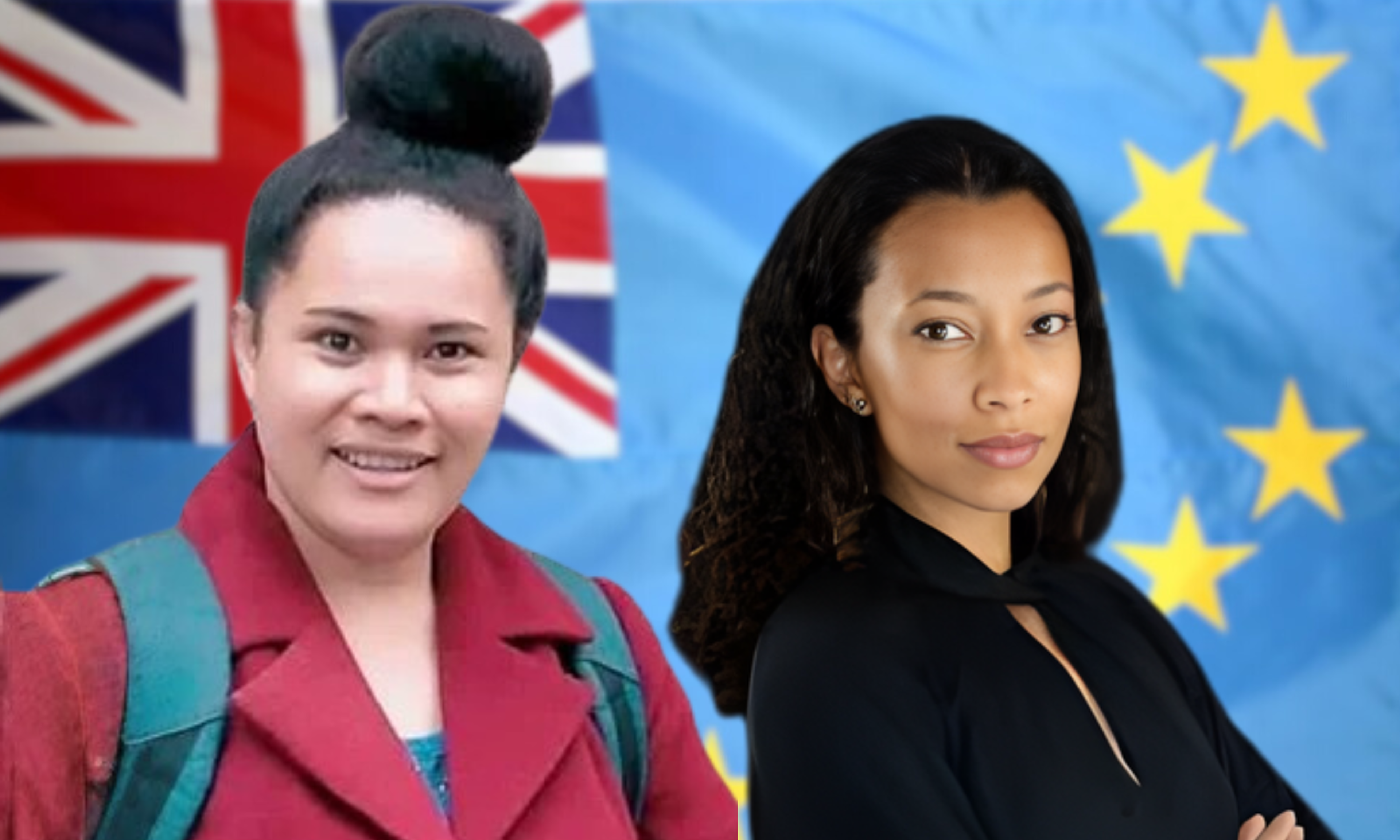
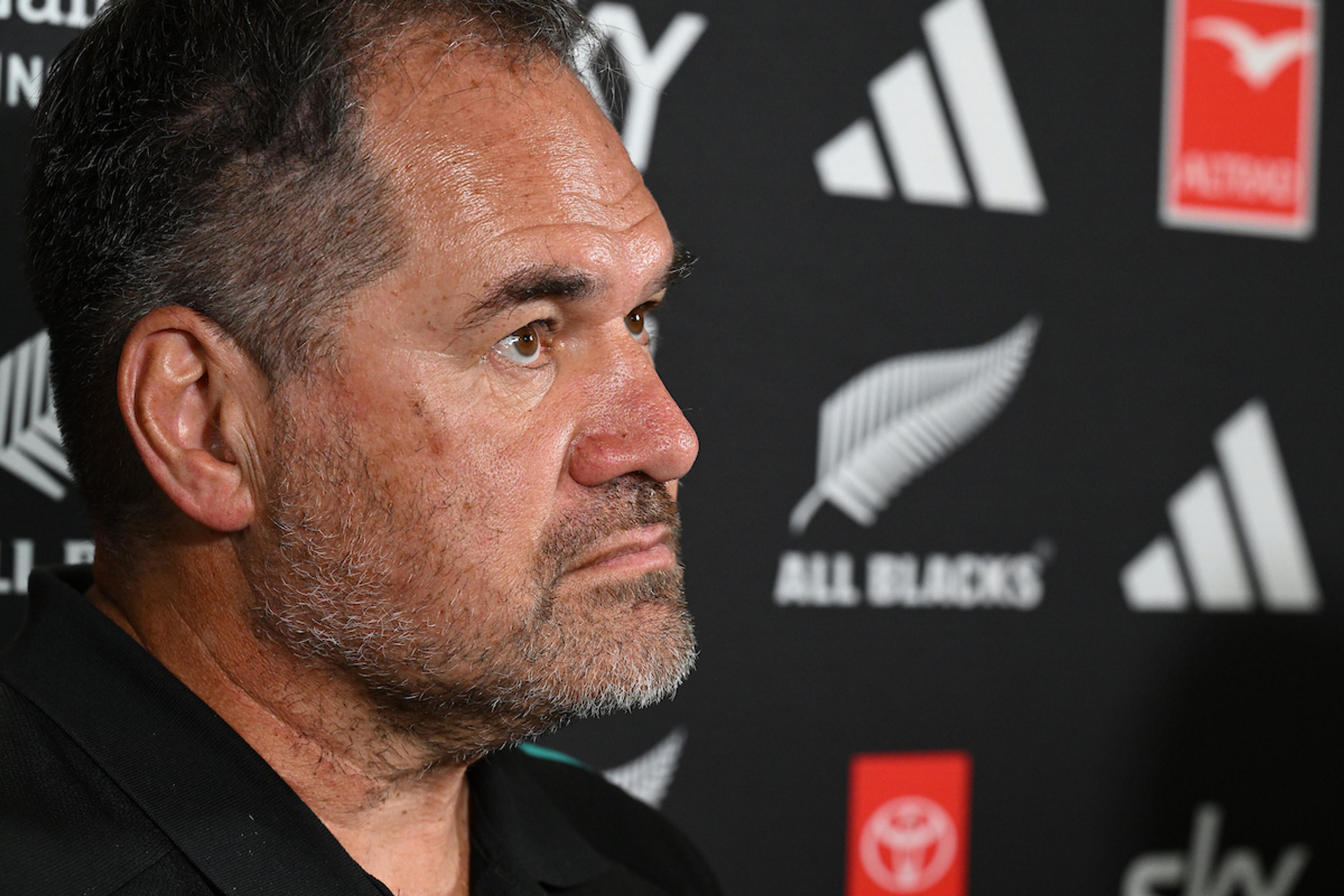
Dave Rennie becomes first All Blacks coach of Pacific heritage



Realm relations in focus as Tokelau-NZ marks 100-year history


Dave Rennie becomes first All Blacks coach of Pacific heritage
Thousands of Australians took to the streets across the country last weekend to protest against the government's immigration policies.
But the rallies turned violent when protesters clashed with pro-Palestinian groups. Police have arrested dozens of people.
According to the Australian Bureau of Statistics, 750,000 New Zealand citizens, including those with Pacific heritage, reside in Australia as of late 2024. This is a recent increase in migration driven by a stronger Australian labour market, the bureau reports.
It also states that the number of New Zealand-born residents in Australia is 598,090 as at June 2023.
According to the 2021 census data, there were over 337,000 people who identify as Pacific Islanders living in Australia, an increase from previous years. The number has continued to grow, with some sources citing figures as high as 415,033 Pasifika people residing in Australia.
The government recently introduced major immigration rule changes in 2025, including increased income thresholds for skilled visas and a new Occupation Shortage List (OSL) from 1 July. An updated English language test took effect on August 7.
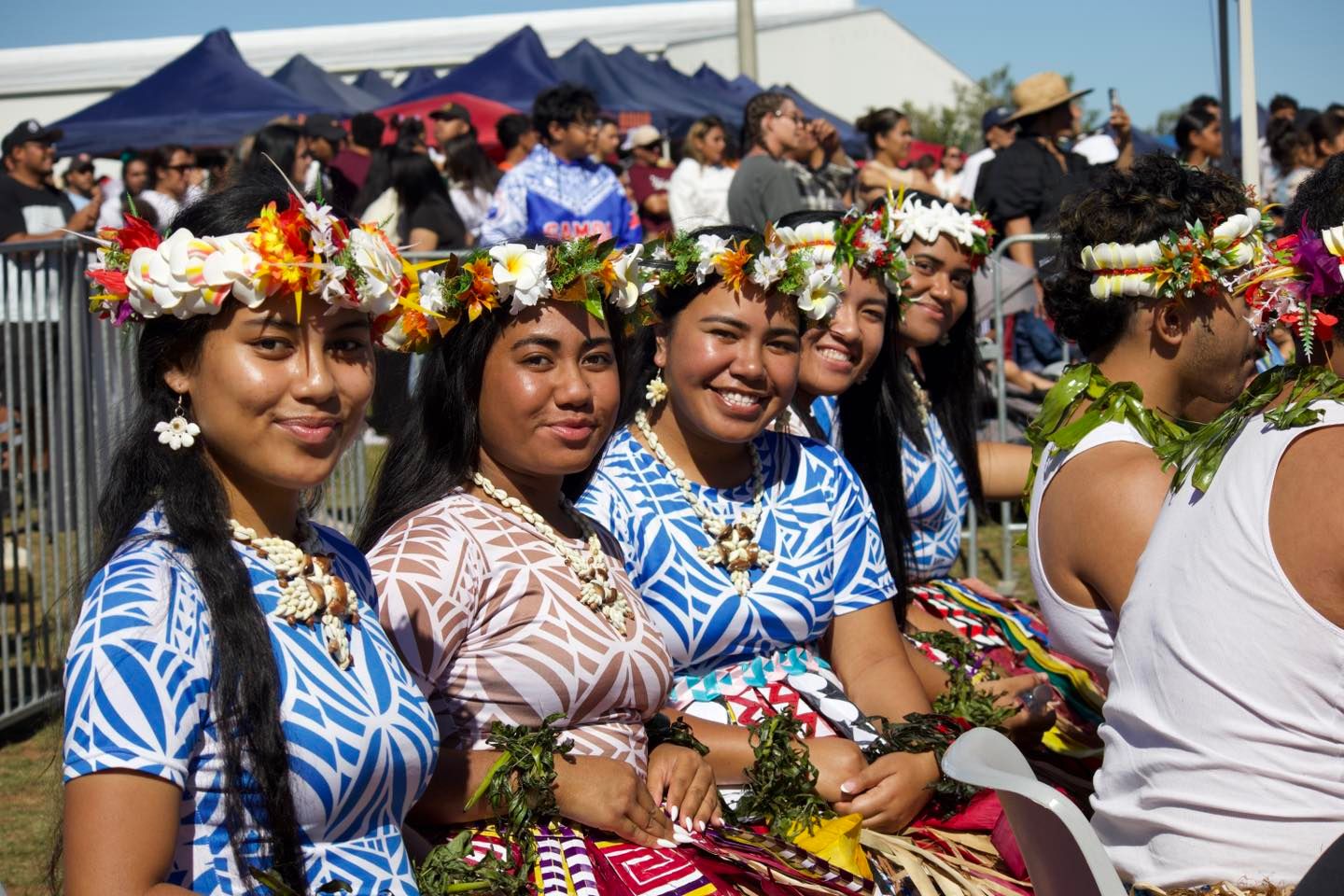
Young Pasifika at a festival in Brisbane. There are more than 300,000 people of Pacific heritage living in Australia, according to the 2021 census data. Photo/Facebook/Pasifika Vibes Festival
International students will face stricter financial requirements and a 25 per cent increase in fees. But Working Holiday Makers (WHMs) can qualify for extended visas by working in areas affected by bushfires and disasters.
The new system also streamlines family visa applications, prioritising skills and Australian qualifications for skilled migrants.
The government has criticised the protests, claiming that some groups involved have links to neo-Nazis organisations, and accused them of spreading hate.
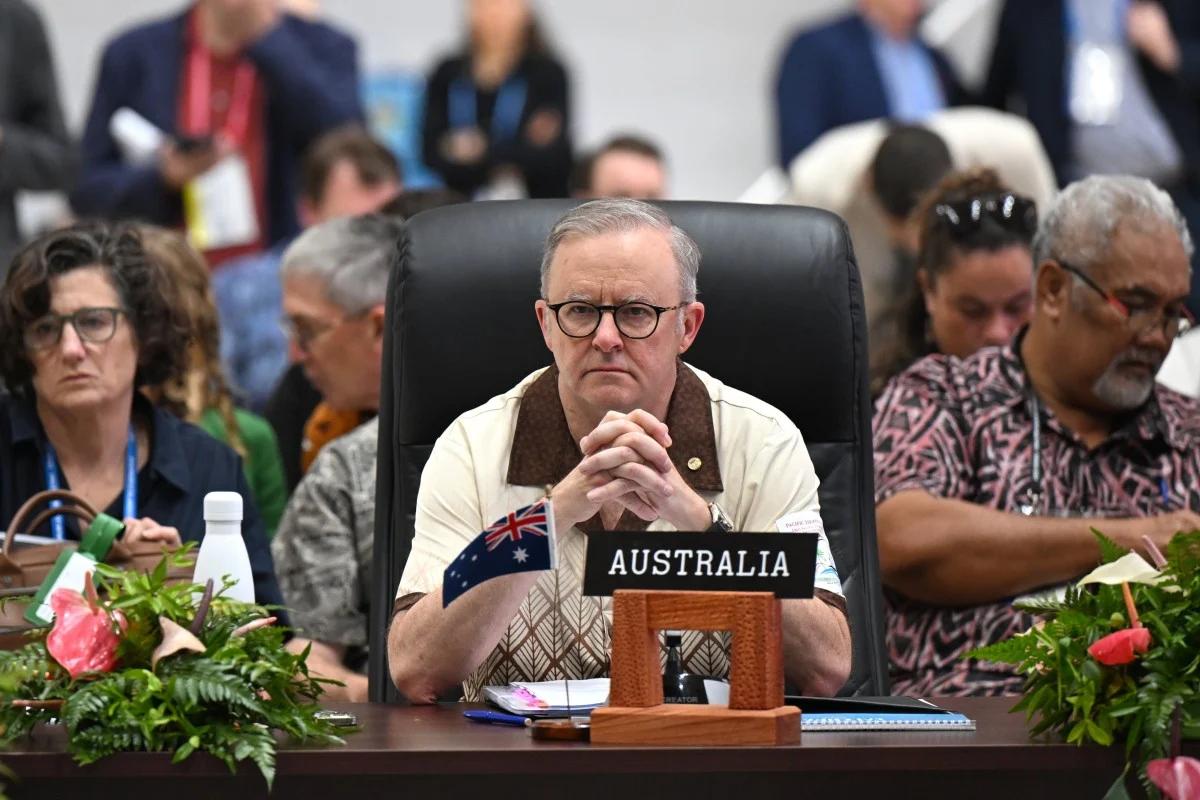
Australian Prime Minister Anthony Albanese is under pressure over his government's immigration policies. Photo/PIF
Murray Watt, a senior government minister, says the rallies do not promote social unity and instead create division in the community.
"We don't support rallies like this that are spreading hate and dividing our community," Watt told Sky News television, adding that the protests were "organised and promoted" by neo-Nazi groups.
The rallies, organised by a group called March for Australia, aimed to address various issues, including cultural changes, job competition, traffic congestion, housing shortages, environmental damage, and public safety.
"Mass migration has torn at the bonds that held our communities together," the group posted on X, adding that the rallies aimed to do "what the mainstream politicians never have the courage to do: demand an end to mass immigration".
The group also raised its concerns about culture, wages, traffic, housing and water supply, environmental destruction, infrastructure, hospitals, crime and loss of community.
In Australia, one in two people is either born overseas or has a parent born overseas. The country has been grappling with a rise in right-wing extremism, including protests by white nationalist supporters.
March for Australia organisers have not responded to PMN News' request for comment.
This year, Australia enacted laws banning Nazi symbols and gestures due to a rise in anti-Semitic incidents, including attacks on Jewish synagogues, buildings, and cars since the beginning of Israel's war in Gaza in October 2023.
The protests come as Israel's deputy Foreign Minister, Sharren Haskel, prepares to visit the Pacific amid criticism from world leaders over her government's stance against Palestine.
According to the Foreign Ministry, Haskel, a former Australian citizen, will lead the delegation “to engage in discussions aimed at deepening and advancing Israel-Pacific relations in a wide range of bilateral, multilateral, and strategic fields”.
Haskel says the Pacific region is a key development partner of Israel. “The Pacific Island states constitute an important focus of support for Israel across various international frameworks," she says in a statement.
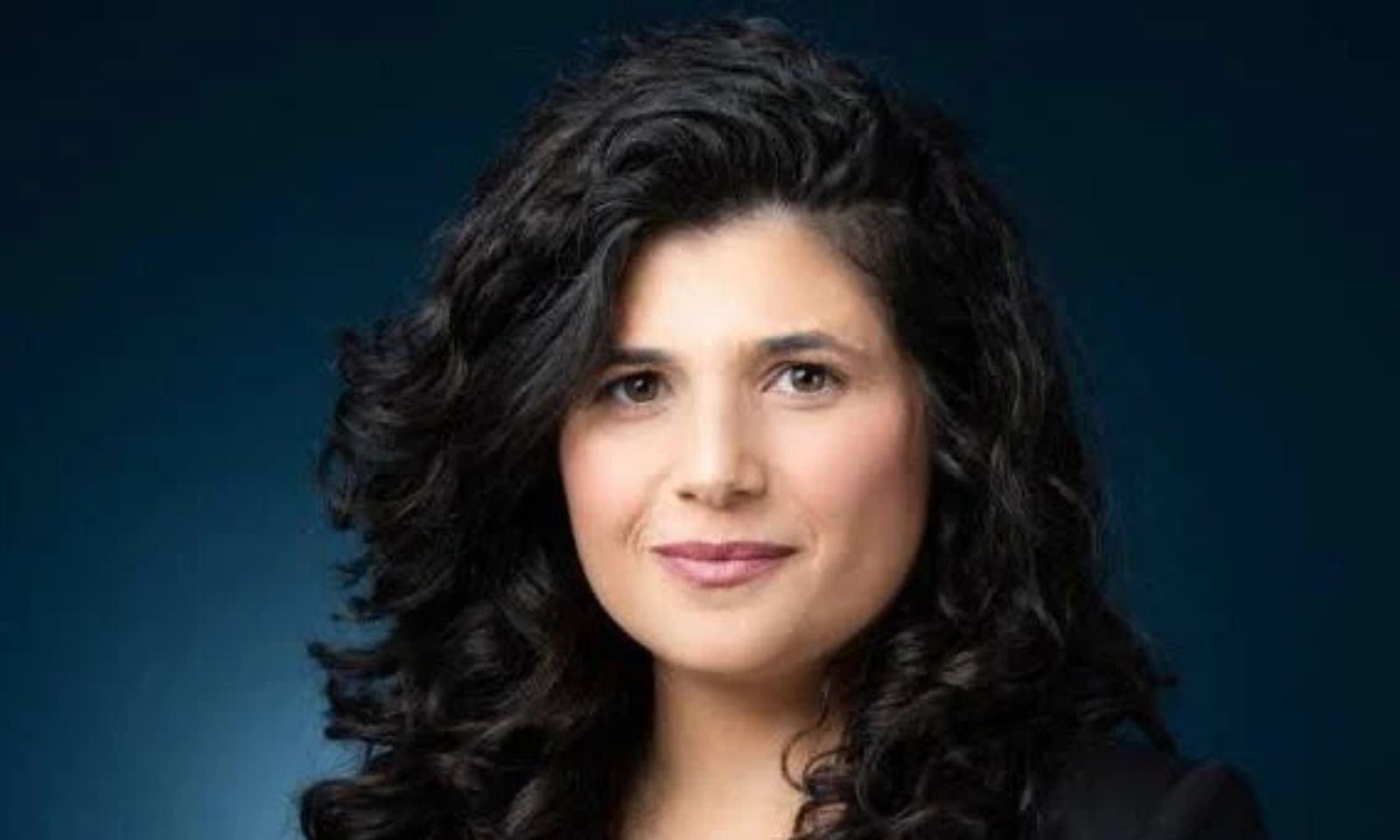
Israel's Deputy Minister for Foreign Affairs Sharren Haskel is set to visit the Pacific. Photo/ugei.it
"This support is expressed bilaterally - most notably through the establishment of official embassies in Jerusalem, Israel’s capital, as exemplified by Papua New Guinea in 2023 and as additional states intend to pursue in the near future - as well as multilaterally, including through significant backing of Israel within the United Nations.
“This forthcoming visit, and the broader diplomatic effort accompanying it, reflects Israel’s profound appreciation for the Pacific Island states and underscores Israel’s commitment to strengthening cooperation with them.”
Haskel's visit follows strained relations between Canberra and Jerusalem, especially after Australia recognised Palestinian statehood, a move that has drawn sharp criticism from Israeli Prime Minister Benjamin Netanyahu.
Netanyahu has been vocal in his opposition to Australia's stance, suggesting that it could tarnish the reputation of Prime Minister Anthony Albanese. He has compared Albanese's recognition of Palestine to the historical attempt to appease Adolf Hitler.
The exact itinerary for Haskel’s visit is yet to be finalised, but he is expected to foster cooperation and strengthen diplomatic relationships in the Pacific. Some Pacific nations support Israel in various international forums, including pro-Palestinian votes at the United Nations.
Fiji, Nauru, the Federated States of Micronesia, Papua New Guinea, Palau, Tuvalu, and Tonga were among just 14 countries to vote against a resolution last year calling for an end to Israel’s occupation of Palestine.
The island nations receive aid funding from Israel. Religion also plays a key role in the Pacific’s support for Israel, with deeply Christian countries aligned with Judaism.
During the protests in Sydney, 8000 people gathered, many waving Australian and flags from other nations, coinciding with the Sydney Marathon, where 35,000 runners pounded the streets on Sunday, finishing at the city's Opera House, local media reported.